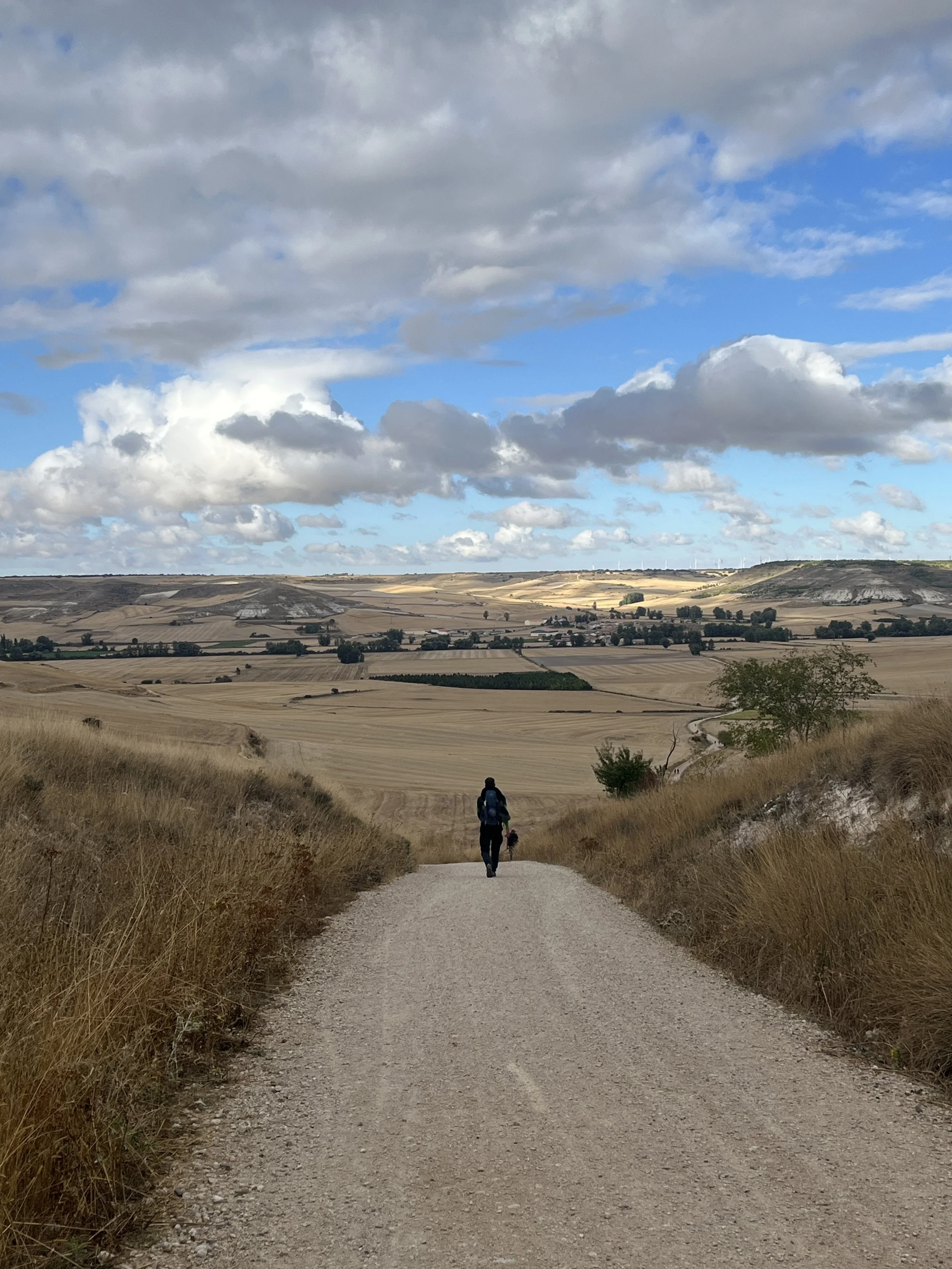By Karen Biggs, St. John Stephen Minister
I recently walked on the Camino de Santiago (“French Way” or "Way of St. James"), a pilgrimage route stretching almost 500 miles from St. Jean Pied de Port, France to Santiago de Compostela, Spain, the purported burial place of James, a disciple of Jesus. Before embarking on this 30-day journey, I planned and trained for months, lugging a heavy backpack around town, up mountains and across valleys.
Regardless of my preparations, I was plagued with one problem after another — blisters, heat rash, tendonitis, insomnia, fever, the common cold, more blisters, and even a seizure — all of this on top of typical travel stresses of not speaking the local languages, sleeping in unfamiliar settings, and not knowing when my next meal would come. It pummeled me, and “WEAKNESS” became the word of the month for me.
As I bemoaned my personal fragility day in and day out, I recalled a Scripture, “For when I am weak, then I am strong.” I really needed to tap into the “then I am strong” part. So, en route with cell phone in hand, I dug into my Bible app to learn more.
The quote is from 2 Corinthians 12:8-10 with the apostle Paul speaking: “Three times I pleaded with the Lord to take it [a difficulty in Paul’s life] away from me. But God said to me, ‘My grace is sufficient for you, for My power is made perfect in weakness.’ Therefore I will boast all the more gladly about my weaknesses, so that Christ’s power may rest on me. That is why, for Christ’s sake, I delight in weaknesses, in insults, in hardships, in persecutions, in difficulties. For when I am weak, then I am strong.”
The first part of the passage reminded me that yes, there are trials and tribulations in life, and God sometimes answers “no” or “not yet” to our pleadings. Next, Paul states that God’s power is “made perfect in weakness.” The NLV Bible translates this verse, “My power works best in weak people;” weak people, who presumably take on a humble posture, admit their need and seek God. God’s Spirit hears and intercedes on their behalf (Rom 8:26). Of course, maybe God’s particular response is not what they wanted, but rest assured, God is Love, God is trustworthy, and God’s response is based on an infinitely bigger Love-plan than anyone can comprehend (I John 4:8, Isa. 55:8).
As I hobbled down the Camino, I prayed, “Lord, please help me endure this pain. Help my feet to heal. Help my mind to calm and be able to sleep. Rejuvenate my stressed body along this long road, for with You all things are possible. You are my strength, and I need you. I can’t make it without You.”
When we feel fragile and weak, that is when God’s strength and power can be most evident to us and to others. Divine intervention can come via friends, healthcare workers, strangers, circumstances, a good night’s sleep, helpful medication, or an angel in disguise. Paul celebrated his weaknesses because he knew that Christ’s power would sustain him. Paul could see past his infirmity and see God’s hand working in and through his troubles.
I was amazed every morning when I awoke, having my strength renewed to face another day. I was not Superman, and sometimes I hailed a cab, took a bus, or visited the ER. My Camino “Way” was messy and not what I envisioned, but I did endure to the end by God’s grace. My weakness led me to prayer, to the Bible, to praise and worship music, and to bow my head inside many cathedrals on the Way. I certainly focused on God, which was the whole point of the pilgrimage to begin with, ironically enough.
I finished the Way more on bended knee than in a blaze of glory, with my eyes widened to see that when we are weak, then we are strong.






